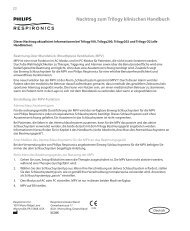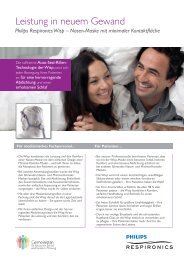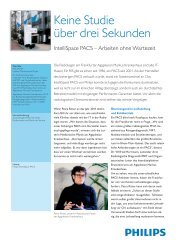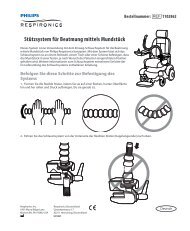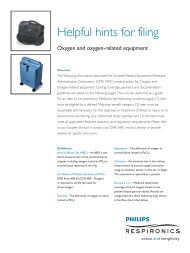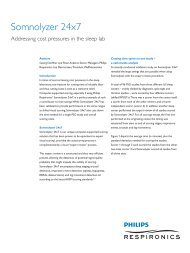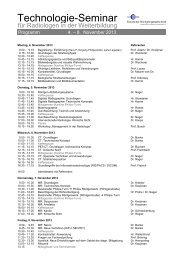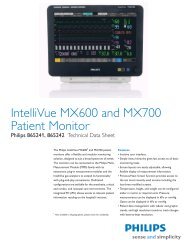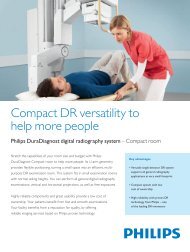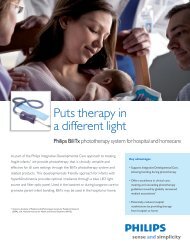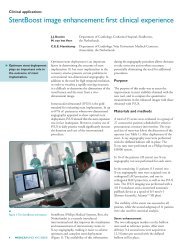- Page 1 and 2:
Notice: This CMS-approved document
- Page 3 and 4:
CMS-1403-FC 3 1. Electronically. Yo
- Page 5 and 6:
CMS-1403-FC 5 FOR FURTHER INFORMATI
- Page 7 and 8:
CMS-1403-FC 7 Trisha Brooks, (410)7
- Page 9 and 10:
CMS-1403-FC 9 ● The physician sel
- Page 11 and 12:
CMS-1403-FC 11 Schedule C. Malpract
- Page 13 and 14:
CMS-1403-FC 13 3. Beneficiary Signa
- Page 15 and 16:
CMS-1403-FC 15 A. Summary of Issues
- Page 17 and 18:
CMS-1403-FC 17 XIII. Waiver of Prop
- Page 19 and 20:
CMS-1403-FC 19 BBRA [Medicare, Medi
- Page 21 and 22:
CMS-1403-FC 21 E/M Evaluation and m
- Page 23 and 24:
CMS-1403-FC 23 MA-PD Medicare Advan
- Page 25 and 26:
CMS-1403-FC 25 OSCAR Online Survey
- Page 27 and 28:
CMS-1403-FC 27 WAMP Widely availabl
- Page 29 and 30:
CMS-1403-FC 29 2. Practice Expense
- Page 31 and 32:
CMS-1403-FC 31 extent practicable a
- Page 33 and 34:
CMS-1403-FC 33 AMA's Current Proced
- Page 35 and 36:
CMS-1403-FC 35 Payment = [(RVU work
- Page 37 and 38:
CMS-1403-FC 37 legislation, the PFS
- Page 39 and 40:
CMS-1403-FC that time, PE RVUs were
- Page 41 and 42:
CMS-1403-FC utilize a “bottom-up
- Page 43 and 44:
CMS-1403-FC ● All other expenses,
- Page 45 and 46:
CMS-1403-FC b. Allocation of PE to
- Page 47 and 48:
CMS-1403-FC combined survey data fr
- Page 49 and 50:
CMS-1403-FC for the global componen
- Page 51 and 52:
CMS-1403-FC equipment cost per minu
- Page 53 and 54:
CMS-1403-FC components), then the i
- Page 55 and 56:
CMS-1403-FC indirect PE for all PFS
- Page 57 and 58:
CMS-1403-FC • Physical therapy ut
- Page 59 and 60:
CMS-1403-FC TABLE 1: Calculation of
- Page 61 and 62:
CMS-1403-FC 2. PE Proposals for CY
- Page 63 and 64:
CMS-1403-FC The formula for estimat
- Page 65 and 66:
CMS-1403-FC arbitrary method for ch
- Page 67 and 68:
CMS-1403-FC We received no comments
- Page 69 and 70:
CMS-1403-FC (iv) Contractor Pricing
- Page 71 and 72:
CMS-1403-FC Response: We will ask t
- Page 73 and 74:
Code CMS-1403-FC 2008/9 Description
- Page 75 and 76:
CMS-1403-FC TABLE 4: Practice Expen
- Page 77 and 78:
CMS-1403-FC B. Geographic Practice
- Page 79 and 80:
CMS-1403-FC services, and are adjus
- Page 81 and 82:
CMS-1403-FC by at least 5 percent,
- Page 83 and 84:
CMS-1403-FC we decided not to proce
- Page 85 and 86:
CMS-1403-FC so as part of the CY 20
- Page 87 and 88:
CMS-1403-FC In the CY 2008 PFS fina
- Page 89 and 90:
CMS-1403-FC are available, we would
- Page 91 and 92:
CMS-1403-FC is no duplication of co
- Page 93 and 94:
CMS-1403-FC practitioner) at the di
- Page 95 and 96:
CMS-1403-FC PFS final rule with com
- Page 97 and 98:
CMS-1403-FC individual MNT (or any
- Page 99 and 100:
CMS-1403-FC Group DSMT (which compr
- Page 101 and 102:
CMS-1403-FC The acuity of a critica
- Page 103 and 104:
CMS-1403-FC needed regarding a crit
- Page 105 and 106:
CMS-1403-FC errors; enhanced patien
- Page 107 and 108:
CMS-1403-FC 99233). For CY 2006, we
- Page 109 and 110:
CMS-1403-FC follow-up inpatient con
- Page 111 and 112:
CMS-1403-FC As noted previously, CP
- Page 113 and 114:
CMS-1403-FC face-to-face encounter
- Page 115 and 116:
CMS-1403-FC visits requested by the
- Page 117 and 118:
CMS-1403-FC Follow-up inpatient tel
- Page 119 and 120:
CMS-1403-FC that were appropriate t
- Page 121 and 122:
CMS-1403-FC HCPCS codes 96150 throu
- Page 123 and 124:
CMS-1403-FC G0332). The Medicare pa
- Page 125 and 126:
CMS-1403-FC code G0332. For CY 2009
- Page 127 and 128:
CMS-1403-FC Response: The separate
- Page 129 and 130:
CMS-1403-FC preadministration-relat
- Page 131 and 132:
CMS-1403-FC pricing of IVIG and Med
- Page 133 and 134:
CMS-1403-FC CPT Code Short Descript
- Page 135 and 136:
CMS-1403-FC percent for the subsequ
- Page 137 and 138:
CMS-1403-FC in the same session, on
- Page 139 and 140:
CMS-1403-FC jeopardizes beneficiary
- Page 141 and 142:
CMS-1403-FC As discussed in the pro
- Page 143 and 144:
CMS-1403-FC Note: Under the PFS, CP
- Page 145 and 146:
CMS-1403-FC The methodology for dev
- Page 147 and 148:
CMS-1403-FC drugs furnished through
- Page 149 and 150:
CMS-1403-FC Response: We disagree w
- Page 151 and 152:
CMS-1403-FC available to support a
- Page 153 and 154:
CMS-1403-FC that there are complica
- Page 155 and 156:
CMS-1403-FC administered to a benef
- Page 157 and 158:
CMS-1403-FC as we assess potential
- Page 159 and 160:
CMS-1403-FC add a modifier to their
- Page 161 and 162:
CMS-1403-FC application of the AQ m
- Page 163 and 164:
CMS-1403-FC 0.7000. ● A reduction
- Page 165 and 166:
CMS-1403-FC so the CY 2009 base com
- Page 167 and 168:
CMS-1403-FC patient utilization gro
- Page 169 and 170:
CMS-1403-FC make those estimates. A
- Page 171 and 172:
CMS-1403-FC After removing the enro
- Page 173 and 174:
CMS-1403-FC For CY 2009, we propose
- Page 175 and 176:
CMS-1403-FC plain language over pol
- Page 177 and 178:
CMS-1403-FC four quarters of ASP pr
- Page 179 and 180:
CMS-1403-FC composite rates. The wa
- Page 181 and 182:
CMS-1403-FC from the figure in the
- Page 183 and 184:
CMS-1403-FC that our goal is the ev
- Page 185 and 186:
CMS-1403-FC the average wage index
- Page 187 and 188:
CMS-1403-FC Labor Statistics, to de
- Page 189 and 190:
CMS-1403-FC been previously deemed
- Page 191 and 192:
CMS-1403-FC CBSA where the campuses
- Page 193 and 194:
CMS-1403-FC composite rates during
- Page 195 and 196:
CMS-1403-FC target amount of compos
- Page 197 and 198:
CMS-1403-FC admission. That is, the
- Page 199 and 200:
CMS-1403-FC that CMS consider issue
- Page 201 and 202:
CMS-1403-FC hold the provider in wh
- Page 203 and 204:
CMS-1403-FC Comment: Commenters rai
- Page 205 and 206:
CMS-1403-FC who have enrolled in th
- Page 207 and 208:
CMS-1403-FC ● Posting IDTF standa
- Page 209 and 210:
CMS-1403-FC other diagnostic testin
- Page 211 and 212:
CMS-1403-FC entities furnishing mob
- Page 213 and 214:
CMS-1403-FC state Radioactive Mater
- Page 215 and 216:
CMS-1403-FC equipment and provide t
- Page 217 and 218:
CMS-1403-FC Response: We understand
- Page 219 and 220:
CMS-1403-FC believe that requiring
- Page 221 and 222:
CMS-1403-FC these claims will ensur
- Page 223 and 224:
CMS-1403-FC and NPP organizations,
- Page 225 and 226:
CMS-1403-FC prior to their enrollin
- Page 227 and 228:
CMS-1403-FC The date of approval is
- Page 229 and 230:
CMS-1403-FC organizations, and indi
- Page 231 and 232:
CMS-1403-FC To assist physician and
- Page 233 and 234:
CMS-1403-FC Comment: Several commen
- Page 235 and 236:
CMS-1403-FC date of filing and circ
- Page 237 and 238:
CMS-1403-FC services are complying
- Page 239 and 240:
CMS-1403-FC days when a Presidentia
- Page 241 and 242:
CMS-1403-FC effective date under ap
- Page 243 and 244:
CMS-1403-FC Comment: The suggestion
- Page 245 and 246:
CMS-1403-FC Response: We thank the
- Page 247 and 248:
CMS-1403-FC provider enrollment giv
- Page 249 and 250:
CMS-1403-FC instead, it will force
- Page 251 and 252:
CMS-1403-FC Response: As stated abo
- Page 253 and 254:
CMS-1403-FC Comment: One commenter
- Page 255 and 256:
CMS-1403-FC In an attempt to ensure
- Page 257 and 258:
CMS-1403-FC rule, rather than limit
- Page 259 and 260:
CMS-1403-FC changes have occurred,
- Page 261 and 262:
CMS-1403-FC Response: While we moni
- Page 263 and 264:
CMS-1403-FC records faster and more
- Page 265 and 266:
CMS-1403-FC In §424.521(a)(1), we
- Page 267 and 268:
CMS-1403-FC practitioners with the
- Page 269 and 270:
CMS-1403-FC In June 2002 and Novemb
- Page 271 and 272:
CMS-1403-FC full implementation sch
- Page 273 and 274:
CMS-1403-FC with billing agents, cl
- Page 275 and 276:
CMS-1403-FC 2. Medicare Billing Pri
- Page 277 and 278:
CMS-1403-FC The FPLP is a collectio
- Page 279 and 280:
CMS-1403-FC continued enrollment to
- Page 281 and 282:
CMS-1403-FC Federal Payment Levy Pr
- Page 283 and 284:
CMS-1403-FC Consistent with existin
- Page 285 and 286:
CMS-1403-FC facilitate the enrollme
- Page 287 and 288:
CMS-1403-FC determination. Specific
- Page 289 and 290:
CMS-1403-FC individual practitioner
- Page 291 and 292:
CMS-1403-FC determines in February
- Page 293 and 294:
CMS-1403-FC Management Manual (IOM
- Page 295 and 296:
CMS-1403-FC Response: Based on thes
- Page 297 and 298:
CMS-1403-FC or continues to meet th
- Page 299 and 300:
CMS-1403-FC to identify and discipl
- Page 301 and 302:
CMS-1403-FC Response: We disagree w
- Page 303 and 304:
CMS-1403-FC save our severe penalti
- Page 305 and 306:
CMS-1403-FC Response: We disagree w
- Page 307 and 308:
CMS-1403-FC affords the supplier ap
- Page 309 and 310:
CMS-1403-FC privileges and assess a
- Page 311 and 312:
CMS-1403-FC §424.535(a)(10) that w
- Page 313 and 314:
CMS-1403-FC documentation for 7 yea
- Page 315 and 316:
CMS-1403-FC pharmacies to follow re
- Page 317 and 318:
CMS-1403-FC Comment: One commenter
- Page 319 and 320:
CMS-1403-FC practitioners, includin
- Page 321 and 322:
CMS-1403-FC that require a revoked
- Page 323 and 324:
CMS-1403-FC provider and supplier e
- Page 325 and 326:
CMS-1403-FC K. Amendment to the Exe
- Page 327 and 328:
CMS-1403-FC Prescription Fill Statu
- Page 329 and 330:
CMS-1403-FC dispensers to move towa
- Page 331 and 332:
CMS-1403-FC Following the publicati
- Page 333 and 334:
CMS-1403-FC does not respond to the
- Page 335 and 336:
CMS-1403-FC facsimiles in all insta
- Page 337 and 338:
CMS-1403-FC Similarly, other commen
- Page 339 and 340:
CMS-1403-FC proposed rule's publica
- Page 341 and 342:
CMS-1403-FC elimination of the comp
- Page 343 and 344:
CMS-1403-FC exemption originally cr
- Page 345 and 346:
CMS-1403-FC dispensers are not requ
- Page 347 and 348:
CMS-1403-FC products, or, where upg
- Page 349 and 350:
CMS-1403-FC take time to develop, a
- Page 351 and 352:
CMS-1403-FC integrated this technol
- Page 353 and 354:
CMS-1403-FC Version 10.2 or higher)
- Page 355 and 356:
CMS-1403-FC proposed January 2009 c
- Page 357 and 358:
CMS-1403-FC L. Comprehensive Outpat
- Page 359 and 360:
CMS-1403-FC examination. In order t
- Page 361 and 362:
CMS-1403-FC qualifications for HHAs
- Page 363 and 364:
CMS-1403-FC distinction in the lice
- Page 365 and 366:
CMS-1403-FC (2) Have successfully c
- Page 367 and 368:
CMS-1403-FC risk-taking behaviors,
- Page 369 and 370:
CMS-1403-FC Therefore, we proposed
- Page 371 and 372:
CMS-1403-FC commenter stated that o
- Page 373 and 374:
CMS-1403-FC psychological services
- Page 375 and 376:
CMS-1403-FC 3. CORF Conditions of P
- Page 377 and 378:
CMS-1403-FC Therefore, we proposed
- Page 379 and 380:
CMS-1403-FC Therefore, we proposed
- Page 381 and 382:
CMS-1403-FC The following is a summ
- Page 383 and 384:
CMS-1403-FC We are not making any c
- Page 385 and 386:
CMS-1403-FC N. Physician Self-Refer
- Page 387 and 388:
CMS-1403-FC arrangements, and the l
- Page 389 and 390:
CMS-1403-FC below are related to ea
- Page 391 and 392:
CMS-1403-FC clinical practice. With
- Page 393 and 394:
CMS-1403-FC In the CY 2009 PFS prop
- Page 395 and 396:
CMS-1403-FC would be outside the sc
- Page 397 and 398:
CMS-1403-FC reflect objective quali
- Page 399 and 400:
CMS-1403-FC quality resulting from
- Page 401 and 402:
CMS-1403-FC payments should be reas
- Page 403 and 404:
CMS-1403-FC changes in referral pat
- Page 405 and 406:
CMS-1403-FC the alternative, we pro
- Page 407 and 408:
CMS-1403-FC finalize this condition
- Page 409 and 410:
CMS-1403-FC and “quality maintena
- Page 411 and 412:
CMS-1403-FC date. We seek comments
- Page 413 and 414:
CMS-1403-FC existing exceptions to
- Page 415 and 416:
CMS-1403-FC our general rulemaking
- Page 417 and 418:
CMS-1403-FC these approaches. We pr
- Page 419 and 420:
CMS-1403-FC building in which the b
- Page 421 and 422:
CMS-1403-FC were concerned that thi
- Page 423 and 424:
CMS-1403-FC supplier will be subjec
- Page 425 and 426:
CMS-1403-FC numerical test for the
- Page 427 and 428:
CMS-1403-FC space in which the orde
- Page 429 and 430:
CMS-1403-FC disadvantage nonproblem
- Page 431 and 432:
CMS-1403-FC would be simpler to not
- Page 433 and 434:
CMS-1403-FC IDTF standards in §410
- Page 435 and 436:
CMS-1403-FC that rule, the Governme
- Page 437 and 438:
CMS-1403-FC with comment period, th
- Page 439 and 440:
CMS-1403-FC 1842(n)(1) of the Act,
- Page 441 and 442:
CMS-1403-FC anti-markup provisions
- Page 443 and 444:
CMS-1403-FC her group practice woul
- Page 445 and 446:
CMS-1403-FC A commenter representin
- Page 447 and 448:
CMS-1403-FC tenens arrangements cou
- Page 449 and 450:
CMS-1403-FC other supplier. We are
- Page 451 and 452:
CMS-1403-FC on pathology reports or
- Page 453 and 454:
CMS-1403-FC patients. According to
- Page 455 and 456:
CMS-1403-FC from sharing a practice
- Page 457 and 458:
CMS-1403-FC Group A orders the TC a
- Page 459 and 460:
CMS-1403-FC physicians the flexibil
- Page 461 and 462:
CMS-1403-FC Response: We recognize
- Page 463 and 464:
CMS-1403-FC Response: Because the d
- Page 465 and 466:
CMS-1403-FC limited by the proposed
- Page 467 and 468:
CMS-1403-FC Response: With respect
- Page 469 and 470:
CMS-1403-FC to focus on the medical
- Page 471 and 472:
CMS-1403-FC service” approach bec
- Page 473 and 474:
CMS-1403-FC have the right to recei
- Page 475 and 476:
CMS-1403-FC 2 approach finalized he
- Page 477 and 478:
CMS-1403-FC the ordering physician
- Page 479 and 480:
CMS-1403-FC ensure an adequate nexu
- Page 481 and 482:
CMS-1403-FC entity” should be def
- Page 483 and 484:
CMS-1403-FC between the performing
- Page 485 and 486:
CMS-1403-FC supplier” to encompas
- Page 487 and 488:
CMS-1403-FC to continue to provide
- Page 489 and 490:
CMS-1403-FC requirements of the Alt
- Page 491 and 492:
CMS-1403-FC supervised in the offic
- Page 493 and 494:
CMS-1403-FC reducing access to care
- Page 495 and 496:
CMS-1403-FC commenter supported ado
- Page 497 and 498:
CMS-1403-FC “outside supplier,”
- Page 499 and 500:
CMS-1403-FC group could recover onl
- Page 501 and 502:
CMS-1403-FC incurred, thereby compe
- Page 503 and 504:
CMS-1403-FC needed to provide the t
- Page 505 and 506:
CMS-1403-FC performing supplier for
- Page 507 and 508:
CMS-1403-FC providers, the services
- Page 509 and 510:
CMS-1403-FC commenter also expresse
- Page 511 and 512:
CMS-1403-FC overutilization of in-o
- Page 513 and 514:
CMS-1403-FC provisions for single-s
- Page 515 and 516:
CMS-1403-FC we did not propose such
- Page 517 and 518:
CMS-1403-FC and PCs supervised or p
- Page 519 and 520:
CMS-1403-FC provisions will not app
- Page 521 and 522:
CMS-1403-FC (Pub. L. 110-173) (MMSE
- Page 523 and 524:
CMS-1403-FC reporting data on quali
- Page 525 and 526:
CMS-1403-FC PQRI and a more detaile
- Page 527 and 528:
CMS-1403-FC and our responses to th
- Page 529 and 530:
CMS-1403-FC provisions of the Priva
- Page 531 and 532:
CMS-1403-FC reducing eligible profe
- Page 533 and 534:
CMS-1403-FC administrative or judic
- Page 535 and 536:
CMS-1403-FC professionals who did n
- Page 537 and 538:
CMS-1403-FC base the incentive paym
- Page 539 and 540:
CMS-1403-FC A few commenters noted
- Page 541 and 542:
CMS-1403-FC administrative burden t
- Page 543 and 544:
CMS-1403-FC requested that more det
- Page 545 and 546:
CMS-1403-FC incentive payments for
- Page 547 and 548:
CMS-1403-FC December 31, 2009 and J
- Page 549 and 550:
CMS-1403-FC the reporting period fo
- Page 551 and 552:
CMS-1403-FC proposed to carry forwa
- Page 553 and 554:
CMS-1403-FC measures group is appli
- Page 555 and 556:
CMS-1403-FC measures results and nu
- Page 557 and 558:
CMS-1403-FC (Delmarva Foundation fo
- Page 559 and 560:
CMS-1403-FC registries to report on
- Page 561 and 562:
CMS-1403-FC reporting options for r
- Page 563 and 564:
CMS-1403-FC incentive payment for P
- Page 565 and 566:
CMS-1403-FC to report 2009 PQRI qua
- Page 567 and 568:
CMS-1403-FC Comment: We received nu
- Page 569 and 570:
CMS-1403-FC Comment: One comment su
- Page 571 and 572:
CMS-1403-FC quality measures result
- Page 573 and 574:
CMS-1403-FC requirements listed on
- Page 575 and 576:
CMS-1403-FC a data submission vendo
- Page 577 and 578:
CMS-1403-FC As we stated in the CY
- Page 579 and 580:
CMS-1403-FC whether eligible profes
- Page 581 and 582:
CMS-1403-FC ● Agree that the regi
- Page 583 and 584:
CMS-1403-FC soon thereafter as is t
- Page 585 and 586:
CMS-1403-FC Comment: We received ma
- Page 587 and 588:
CMS-1403-FC Comment: One commenter
- Page 589 and 590:
CMS-1403-FC additional 2.0 percent
- Page 591 and 592:
CMS-1403-FC EHRs in 2009. The measu
- Page 593 and 594:
CMS-1403-FC i. Overview and Summary
- Page 595 and 596:
CMS-1403-FC voluntary consensus sta
- Page 597 and 598:
CMS-1403-FC Comment: Several commen
- Page 599 and 600:
CMS-1403-FC the AMA-PCPI should be
- Page 601 and 602:
CMS-1403-FC are appropriate and do
- Page 603 and 604:
CMS-1403-FC to make any changes to
- Page 605 and 606:
CMS-1403-FC post the measures for p
- Page 607 and 608:
CMS-1403-FC beneficiaries. We now h
- Page 609 and 610:
CMS-1403-FC identified in Tables 15
- Page 611 and 612:
CMS-1403-FC important difference in
- Page 613 and 614:
CMS-1403-FC not use Measures #73 Ca
- Page 615 and 616:
CMS-1403-FC measures, but which are
- Page 617 and 618:
CMS-1403-FC with comment period. Ho
- Page 619 and 620:
CMS-1403-FC ● Measure #41 Osteopo
- Page 621 and 622:
CMS-1403-FC professional to simply
- Page 623 and 624:
CMS-1403-FC measures. We consider t
- Page 625 and 626:
CMS-1403-FC Measure Number and Titl
- Page 627 and 628:
CMS-1403-FC Measure Number and Titl
- Page 629 and 630:
CMS-1403-FC ● Measure #120 CKD: A
- Page 631 and 632:
CMS-1403-FC For the 2009 PQRI quali
- Page 633 and 634:
CMS-1403-FC rule indicated that the
- Page 635 and 636:
CMS-1403-FC Response: As suggested
- Page 637 and 638:
CMS-1403-FC required for the measur
- Page 639 and 640:
CMS-1403-FC ● Achievement of NQF
- Page 641 and 642:
CMS-1403-FC These additional measur
- Page 643 and 644:
CMS-1403-FC We did not include this
- Page 645 and 646:
CMS-1403-FC Comment: Many commenter
- Page 647 and 648:
CMS-1403-FC groups must have a part
- Page 649 and 650:
CMS-1403-FC selected for inclusion
- Page 651 and 652:
CMS-1403-FC Measure Title Measure S
- Page 653 and 654:
CMS-1403-FC proposed HIV/AIDS measu
- Page 655 and 656:
CMS-1403-FC set of denominator spec
- Page 657 and 658:
CMS-1403-FC results, for this purpo
- Page 659 and 660:
CMS-1403-FC informed decision-makin
- Page 661 and 662:
CMS-1403-FC Comment: Several commen
- Page 663 and 664:
CMS-1403-FC prior commitments that
- Page 665 and 666:
CMS-1403-FC groups who successfully
- Page 667 and 668:
CMS-1403-FC ● Eligible profession
- Page 669 and 670:
CMS-1403-FC patients, families, and
- Page 671 and 672:
CMS-1403-FC that have satisfactoril
- Page 673 and 674:
CMS-1403-FC e-prescribing quality m
- Page 675 and 676:
CMS-1403-FC Douglas S. and Friedman
- Page 677 and 678:
CMS-1403-FC subsequent year, if the
- Page 679 and 680:
CMS-1403-FC eligible professional f
- Page 681 and 682:
CMS-1403-FC and is included in the
- Page 683 and 684:
CMS-1403-FC The measure becomes app
- Page 685 and 686:
CMS-1403-FC is, Measure #125) appli
- Page 687 and 688:
CMS-1403-FC outpatient setting. Whi
- Page 689 and 690:
CMS-1403-FC ability of an electroni
- Page 691 and 692:
CMS-1403-FC October 2005 (hereinaft
- Page 693 and 694:
CMS-1403-FC We are aware that there
- Page 695 and 696:
CMS-1403-FC provided during the enc
- Page 697 and 698:
CMS-1403-FC denominator of a measur
- Page 699 and 700:
CMS-1403-FC cases. If the is determ
- Page 701 and 702:
CMS-1403-FC during 2009; and (3) wh
- Page 703 and 704: CMS-1403-FC on this quality measure
- Page 705 and 706: CMS-1403-FC become effective until
- Page 707 and 708: CMS-1403-FC and CY 2007 PFS final r
- Page 709 and 710: CMS-1403-FC directly affected by th
- Page 711 and 712: CMS-1403-FC requires advanced pract
- Page 713 and 714: CMS-1403-FC applaud CMS for recogni
- Page 715 and 716: CMS-1403-FC standardization of DNP
- Page 717 and 718: CMS-1403-FC for the most part, been
- Page 719 and 720: CMS-1403-FC that the requirement fo
- Page 721 and 722: CMS-1403-FC degree in radiologic te
- Page 723 and 724: CMS-1403-FC the physicians that fur
- Page 725 and 726: CMS-1403-FC is associated with a te
- Page 727 and 728: CMS-1403-FC facility in which a tec
- Page 729 and 730: CMS-1403-FC by the Medicare program
- Page 731 and 732: CMS-1403-FC pressure (CPAP)” and
- Page 733 and 734: CMS-1403-FC for example chronic obs
- Page 735 and 736: CMS-1403-FC thus they believe leadi
- Page 737 and 738: CMS-1403-FC Excepting attended faci
- Page 739 and 740: CMS-1403-FC supplier separately. Ho
- Page 741 and 742: CMS-1403-FC final rule’s provisio
- Page 743 and 744: CMS-1403-FC as a DME supplier and p
- Page 745 and 746: CMS-1403-FC Moreover, given our gen
- Page 747 and 748: CMS-1403-FC resources and infrastru
- Page 749 and 750: CMS-1403-FC Comment: Several commen
- Page 751 and 752: CMS-1403-FC organization through a
- Page 753: CMS-1403-FC After reviewing the pub
- Page 757 and 758: CMS-1403-FC be costly and burdensom
- Page 759 and 760: CMS-1403-FC adopting our proposal t
- Page 761 and 762: CMS-1403-FC We are not persuaded to
- Page 763 and 764: CMS-1403-FC §424.36(b)(6)(ii)(C)(2
- Page 765 and 766: CMS-1403-FC be made to obtain the s
- Page 767 and 768: CMS-1403-FC willing to sign at the
- Page 769 and 770: CMS-1403-FC and not suppliers, may
- Page 771 and 772: CMS-1403-FC crew member would have
- Page 773 and 774: CMS-1403-FC In order to determine f
- Page 775 and 776: CMS-1403-FC retrieval of the variou
- Page 777 and 778: CMS-1403-FC plan that demonstrates
- Page 779 and 780: CMS-1403-FC conviction, license sus
- Page 781 and 782: CMS-1403-FC The following is a summ
- Page 783 and 784: CMS-1403-FC faith reduces the time
- Page 785 and 786: CMS-1403-FC suspension or revocatio
- Page 787 and 788: CMS-1403-FC 9 percent per year. 2 I
- Page 789 and 790: CMS-1403-FC magnetic resonance imag
- Page 791 and 792: CMS-1403-FC Committee for Quality A
- Page 793 and 794: CMS-1403-FC measures in CMS’ VBP
- Page 795 and 796: CMS-1403-FC the Boston program site
- Page 797 and 798: CMS-1403-FC conditions that are hig
- Page 799 and 800: CMS-1403-FC reports? ● Do physici
- Page 801 and 802: CMS-1403-FC most Evaluation and Man
- Page 803 and 804: CMS-1403-FC III. Medicare Improveme
- Page 805 and 806:
CMS-1403-FC Specifically, section 1
- Page 807 and 808:
CMS-1403-FC period. The public will
- Page 809 and 810:
CMS-1403-FC Section 101(b) of the M
- Page 811 and 812:
CMS-1403-FC 1 year after the effect
- Page 813 and 814:
CMS-1403-FC applies to both adult m
- Page 815 and 816:
CMS-1403-FC period is limited to th
- Page 817 and 818:
CMS-1403-FC 2007 through 2010. In a
- Page 819 and 820:
CMS-1403-FC Section 1848(m)(3)(D) o
- Page 821 and 822:
CMS-1403-FC In addition to the prov
- Page 823 and 824:
CMS-1403-FC during the 2009 and 201
- Page 825 and 826:
CMS-1403-FC prescribers for 2009 ar
- Page 827 and 828:
CMS-1403-FC requirement by making a
- Page 829 and 830:
CMS-1403-FC continue to bill the Me
- Page 831 and 832:
CMS-1403-FC therapy and speech-lang
- Page 833 and 834:
CMS-1403-FC ● Section 1835(a) of
- Page 835 and 836:
CMS-1403-FC The amendments made by
- Page 837 and 838:
CMS-1403-FC national associations a
- Page 839 and 840:
CMS-1403-FC On November 9, 2006, we
- Page 841 and 842:
CMS-1403-FC our regulations states
- Page 843 and 844:
CMS-1403-FC rental period. The supp
- Page 845 and 846:
CMS-1403-FC reasonable useful lifet
- Page 847 and 848:
CMS-1403-FC to use the equipment be
- Page 849 and 850:
CMS-1403-FC oxygen contents after t
- Page 851 and 852:
CMS-1403-FC the oxygen contents and
- Page 853 and 854:
CMS-1403-FC Section 414.210(e)(2) a
- Page 855 and 856:
CMS-1403-FC reported to us that, ba
- Page 857 and 858:
CMS-1403-FC non-routine maintenance
- Page 859 and 860:
CMS-1403-FC As a result, we will ma
- Page 861 and 862:
CMS-1403-FC 31, 2009 amounts for gr
- Page 863 and 864:
CMS-1403-FC under section 332(a)(1)
- Page 865 and 866:
CMS-1403-FC furnishing services via
- Page 867 and 868:
CMS-1403-FC required to furnish dir
- Page 869 and 870:
CMS-1403-FC mental health services
- Page 871 and 872:
CMS-1403-FC Skilled Nursing Facilit
- Page 873 and 874:
CMS-1403-FC where the SNF resident
- Page 875 and 876:
CMS-1403-FC describes the methodolo
- Page 877 and 878:
CMS-1403-FC The RUC has created the
- Page 879 and 880:
CMS-1403-FC Response: Although we r
- Page 881 and 882:
CMS-1403-FC occurring code pairs. T
- Page 883 and 884:
CMS-1403-FC a standing panel of exp
- Page 885 and 886:
CMS-1403-FC extraction of the assoc
- Page 887 and 888:
CMS-1403-FC TABLE 26: AMA RUC Recom
- Page 889 and 890:
CMS-1403-FC AMA RUC Rec Site of Ser
- Page 891 and 892:
CMS-1403-FC AMA RUC Rec Site of Ser
- Page 893 and 894:
CMS-1403-FC AMA RUC Rec Site of Ser
- Page 895 and 896:
CMS-1403-FC Note: The RUC reviewed
- Page 897 and 898:
CMS-1403-FC C. Interim 2008 Codes 1
- Page 899 and 900:
CMS-1403-FC national noncoverage de
- Page 901 and 902:
CMS-1403-FC CPT codes for 2008. In
- Page 903 and 904:
CMS-1403-FC associated work RVUs, t
- Page 905 and 906:
CMS-1403-FC CPT 1 AMA RUC Work RVU
- Page 907 and 908:
CMS-1403-FC # New CPT code. 1 All C
- Page 909 and 910:
CMS-1403-FC ● 27218, Open treatme
- Page 911 and 912:
CMS-1403-FC RVUs for G0412; 15.73 w
- Page 913 and 914:
CMS-1403-FC Therefore, we disagree
- Page 915 and 916:
CMS-1403-FC generally contractor pr
- Page 917 and 918:
CMS-1403-FC In addition, we believe
- Page 919 and 920:
CMS-1403-FC RVU for CPT code 93289
- Page 921 and 922:
CMS-1403-FC time to better understa
- Page 923 and 924:
CMS-1403-FC ● 93306, Echocardiogr
- Page 925 and 926:
CMS-1403-FC Although not discussed
- Page 927 and 928:
CMS-1403-FC for New and Revised 200
- Page 929 and 930:
CMS-1403-FC item. In addition, the
- Page 931 and 932:
CMS-1403-FC 90956, 90957, 90958, 90
- Page 933 and 934:
CMS-1403-FC place of these two new
- Page 935 and 936:
CMS-1403-FC beneficiary or any othe
- Page 937 and 938:
CMS-1403-FC ● Adding the followin
- Page 939 and 940:
CMS-1403-FC Tables 29 and 30 also i
- Page 941 and 942:
CMS-1403-FC RADIOLOGY AND CERTAIN O
- Page 943 and 944:
CMS-1403-FC 93320 Doppler echo exam
- Page 945 and 946:
CMS-1403-FC index data, that the hi
- Page 947 and 948:
CMS-1403-FC TABLE 32: Increase in t
- Page 949 and 950:
CMS-1403-FC C. The Update Adjustmen
- Page 951 and 952:
CMS-1403-FC end of the prior year a
- Page 953 and 954:
CMS-1403-FC CY 2009, the statute re
- Page 955 and 956:
CMS-1403-FC Actual08 = Estimated Ac
- Page 957 and 958:
CMS-1403-FC 1848(f)(3)(C)(i) of the
- Page 959 and 960:
CMS-1403-FC ● Screening mammograp
- Page 961 and 962:
CMS-1403-FC payments while promotin
- Page 963 and 964:
CMS-1403-FC E. Final Sustainable Gr
- Page 965 and 966:
CMS-1403-FC included in the SGR (us
- Page 967 and 968:
CMS-1403-FC that this figure will c
- Page 969 and 970:
CMS-1403-FC physicians' services in
- Page 971 and 972:
CMS-1403-FC imaging services, the M
- Page 973 and 974:
CMS-1403-FC CY 2007. Table 42 illus
- Page 975 and 976:
CMS-1403-FC year to the entire year
- Page 977 and 978:
CMS-1403-FC the CF. Therefore, this
- Page 979 and 980:
CMS-1403-FC estimate that CY 2009 R
- Page 981 and 982:
CMS-1403-FC Table 44: Calculation o
- Page 983 and 984:
CMS-1403-FC XI. Payment for Certain
- Page 985 and 986:
CMS-1403-FC In the Competitive Acqu
- Page 987 and 988:
CMS-1403-FC glasses, hand magnifier
- Page 989 and 990:
CMS-1403-FC Our interpretation of t
- Page 991 and 992:
CMS-1403-FC Response: We understand
- Page 993 and 994:
CMS-1403-FC defines “eyeglass”
- Page 995 and 996:
CMS-1403-FC this statutory exclusio
- Page 997 and 998:
CMS-1403-FC advances in the use of
- Page 999 and 1000:
CMS-1403-FC is paid for his or her
- Page 1001 and 1002:
CMS-1403-FC XII. Provisions of the
- Page 1003 and 1004:
CMS-1403-FC these RUC recommendatio
- Page 1005 and 1006:
CMS-1403-FC services. We believe a
- Page 1007 and 1008:
CMS-1403-FC Section 144(b) of the M
- Page 1009 and 1010:
CMS-1403-FC rulemaking with respect
- Page 1011 and 1012:
CMS-1403-FC (respectively) of this
- Page 1013 and 1014:
CMS-1403-FC completing and submitti
- Page 1015 and 1016:
CMS-1403-FC §424.516(d)(1). Additi
- Page 1017 and 1018:
CMS-1403-FC to several associated i
- Page 1019 and 1020:
CMS-1403-FC incentive payment for 2
- Page 1021 and 1022:
CMS-1403-FC year of PQRI reporting)
- Page 1023 and 1024:
CMS-1403-FC Based on the assumption
- Page 1025 and 1026:
CMS-1403-FC these activities for th
- Page 1027 and 1028:
CMS-1403-FC per hour, we estimate t
- Page 1029 and 1030:
CMS-1403-FC Because of the large nu
- Page 1031 and 1032:
CMS-1403-FC threshold, and hence al
- Page 1033 and 1034:
CMS-1403-FC shoes, the regulation i
- Page 1035 and 1036:
CMS-1403-FC with comment period for
- Page 1037 and 1038:
CMS-1403-FC substance of State laws
- Page 1039 and 1040:
CMS-1403-FC $20 million from what e
- Page 1041 and 1042:
CMS-1403-FC ● Impact of Work RVU
- Page 1043 and 1044:
CMS-1403-FC imaging services from t
- Page 1045 and 1046:
CMS-1403-FC ● Impact of section 1
- Page 1047 and 1048:
CMS-1403-FC management, could have
- Page 1049 and 1050:
CMS-1403-FC Table 50 illustrates, f
- Page 1051 and 1052:
CMS-1403-FC CPT/ HCPCS Mod Descript
- Page 1053 and 1054:
CMS-1403-FC impact associated with
- Page 1055 and 1056:
CMS-1403-FC The fourth column shows
- Page 1057 and 1058:
CMS-1403-FC the CY 2007 claims. The
- Page 1059 and 1060:
CMS-1403-FC 1059 4/This column show
- Page 1061 and 1062:
CMS-1403-FC requirements is to allo
- Page 1063 and 1064:
CMS-1403-FC This amendment of the e
- Page 1065 and 1066:
CMS-1403-FC 4 minutes per call, lab
- Page 1067 and 1068:
CMS-1403-FC e-prescribing and who m
- Page 1069 and 1070:
CMS-1403-FC anti-markup provisions
- Page 1071 and 1072:
CMS-1403-FC approximately $50 per h
- Page 1073 and 1074:
CMS-1403-FC e-prescribing measure i
- Page 1075 and 1076:
CMS-1403-FC we estimate that each e
- Page 1077 and 1078:
CMS-1403-FC P. Prohibition Concerni
- Page 1079 and 1080:
CMS-1403-FC that provides a calcula
- Page 1081 and 1082:
CMS-1403-FC treatment) that occur a
- Page 1083 and 1084:
CMS-1403-FC locality (+5.37 percent
- Page 1085 and 1086:
CMS-1403-FC additional rental payme
- Page 1087 and 1088:
CMS-1403-FC T. Competitive Acquisit
- Page 1089 and 1090:
CMS-1403-FC Program; II.T. Electron
- Page 1091 and 1092:
CMS-1403-FC which means that in 200
- Page 1093 and 1094:
CMS-1403-FC List of Subjects 42 CFR
- Page 1095 and 1096:
CMS-1403-FC For the reasons set for
- Page 1097 and 1098:
CMS-1403-FC (1) Except as specified
- Page 1099 and 1100:
CMS-1403-FC pressure, a visual acui
- Page 1101 and 1102:
CMS-1403-FC (ii) A speech-language
- Page 1103 and 1104:
CMS-1403-FC during the hours that t
- Page 1105 and 1106:
CMS-1403-FC (i) Be certified as a n
- Page 1107 and 1108:
CMS-1403-FC 14. Section 410.155 is
- Page 1109 and 1110:
CMS-1403-FC prostate cancer screeni
- Page 1111 and 1112:
CMS-1403-FC B. Amending the definit
- Page 1113 and 1114:
CMS-1403-FC The revisions and addit
- Page 1115 and 1116:
CMS-1403-FC or institution other th
- Page 1117 and 1118:
CMS-1403-FC substantially all (whic
- Page 1119 and 1120:
CMS-1403-FC psychiatric diagnostic
- Page 1121 and 1122:
CMS-1403-FC repairing, maintaining,
- Page 1123 and 1124:
CMS-1403-FC B. Deleting paragraph (
- Page 1125 and 1126:
CMS-1403-FC during any period of me
- Page 1127 and 1128:
CMS-1403-FC (c)(1). A. Revising the
- Page 1129 and 1130:
CMS-1403-FC * * * * * (b) * * * (2)
- Page 1131 and 1132:
CMS-1403-FC assigned to such drug p
- Page 1133 and 1134:
CMS-1403-FC 33. In §415.130(d), th
- Page 1135 and 1136:
CMS-1403-FC (6) An ambulance provid
- Page 1137 and 1138:
CMS-1403-FC §424.57 Special paymen
- Page 1139 and 1140:
CMS-1403-FC Final adverse action me
- Page 1141 and 1142:
CMS-1403-FC (b) Reporting requireme
- Page 1143 and 1144:
CMS-1403-FC of Medicare billing pri
- Page 1145 and 1146:
CMS-1403-FC (a) Physicians, nonphys
- Page 1147 and 1148:
CMS-1403-FC * * * * * (g) Effective
- Page 1149 and 1150:
CMS-1403-FC that meet the qualifica
- Page 1151 and 1152:
CMS-1403-FC (3) Have equivalent tra
- Page 1153 and 1154:
CMS-1403-FC §485.711 Condition of
- Page 1155 and 1156:
CMS-1403-FC Subpart C--Conditions f
- Page 1157 and 1158:
CMS-1403-FC Authority: Catalog of F
- Page 1159 and 1160:
CMS-1403-FC Addendum B means that C
- Page 1161 and 1162:
CMS-1403-FC which they are incident
- Page 1163 and 1164:
CMS-1403-FC T = There are RVUs for
- Page 1165 and 1166:
CMS-1403-FC ADDENDUM B: Relative Va
- Page 1167 and 1168:
CMS-1403-FC Physi- cian Work Fully
- Page 1169 and 1170:
CMS-1403-FC Physi- cian Work Fully
- Page 1171 and 1172:
CMS-1403-FC Physi- cian Work Fully
- Page 1173 and 1174:
CMS-1403-FC Physi- cian Work Fully
- Page 1175 and 1176:
CMS-1403-FC Physi- cian Work Fully
- Page 1177 and 1178:
CMS-1403-FC Physi- cian Work Fully
- Page 1179 and 1180:
CMS-1403-FC Physi- cian Work Fully
- Page 1181 and 1182:
CMS-1403-FC Physi- cian Work Fully
- Page 1183 and 1184:
CMS-1403-FC Physi- cian Work Fully
- Page 1185 and 1186:
CMS-1403-FC Physi- cian Work Fully
- Page 1187 and 1188:
CMS-1403-FC Physi- cian Work Fully
- Page 1189 and 1190:
CMS-1403-FC Physi- cian Work Fully
- Page 1191 and 1192:
CMS-1403-FC Physi- cian Work Fully
- Page 1193 and 1194:
CMS-1403-FC Physi- cian Work Fully
- Page 1195 and 1196:
CMS-1403-FC Physi- cian Work Fully
- Page 1197 and 1198:
CMS-1403-FC Physi- cian Work Fully
- Page 1199 and 1200:
CMS-1403-FC Physi- cian Work Fully
- Page 1201 and 1202:
CMS-1403-FC Physi- cian Work Fully
- Page 1203 and 1204:
CMS-1403-FC Physi- cian Work Fully
- Page 1205 and 1206:
CMS-1403-FC Physi- cian Work Fully
- Page 1207 and 1208:
CMS-1403-FC Physi- cian Work Fully
- Page 1209 and 1210:
CMS-1403-FC Physi- cian Work Fully
- Page 1211 and 1212:
CMS-1403-FC Physi- cian Work Fully
- Page 1213 and 1214:
CMS-1403-FC Physi- cian Work Fully
- Page 1215 and 1216:
CMS-1403-FC Physi- cian Work Fully
- Page 1217 and 1218:
CMS-1403-FC Physi- cian Work Fully
- Page 1219 and 1220:
CMS-1403-FC Physi- cian Work Fully
- Page 1221 and 1222:
CMS-1403-FC Physi- cian Work Fully
- Page 1223 and 1224:
CMS-1403-FC Physi- cian Work Fully
- Page 1225 and 1226:
CMS-1403-FC Physi- cian Work Fully
- Page 1227 and 1228:
CMS-1403-FC Physi- cian Work Fully
- Page 1229 and 1230:
CMS-1403-FC Physi- cian Work Fully
- Page 1231 and 1232:
CMS-1403-FC Physi- cian Work Fully
- Page 1233 and 1234:
CMS-1403-FC Physi- cian Work Fully
- Page 1235 and 1236:
CMS-1403-FC Physi- cian Work Fully
- Page 1237 and 1238:
CMS-1403-FC Physi- cian Work Fully
- Page 1239 and 1240:
CMS-1403-FC Physi- cian Work Fully
- Page 1241 and 1242:
CMS-1403-FC Physi- cian Work Fully
- Page 1243 and 1244:
CMS-1403-FC Physi- cian Work Fully
- Page 1245 and 1246:
CMS-1403-FC Physi- cian Work Fully
- Page 1247 and 1248:
CMS-1403-FC Physi- cian Work Fully
- Page 1249 and 1250:
CMS-1403-FC Physi- cian Work Fully
- Page 1251 and 1252:
CMS-1403-FC Physi- cian Work Fully
- Page 1253 and 1254:
CMS-1403-FC Physi- cian Work Fully
- Page 1255 and 1256:
CMS-1403-FC Physi- cian Work Fully
- Page 1257 and 1258:
CMS-1403-FC Physi- cian Work Fully
- Page 1259 and 1260:
CMS-1403-FC Physi- cian Work Fully
- Page 1261 and 1262:
CMS-1403-FC Physi- cian Work Fully
- Page 1263 and 1264:
CMS-1403-FC Physi- cian Work Fully
- Page 1265 and 1266:
CMS-1403-FC Physi- cian Work Fully
- Page 1267 and 1268:
CMS-1403-FC Physi- cian Work Fully
- Page 1269 and 1270:
CMS-1403-FC Physi- cian Work Fully
- Page 1271 and 1272:
CMS-1403-FC Physi- cian Work Fully
- Page 1273 and 1274:
CMS-1403-FC Physi- cian Work Fully
- Page 1275 and 1276:
CMS-1403-FC Physi- cian Work Fully
- Page 1277 and 1278:
CMS-1403-FC Physi- cian Work Fully
- Page 1279 and 1280:
CMS-1403-FC Physi- cian Work Fully
- Page 1281 and 1282:
CMS-1403-FC Physi- cian Work Fully
- Page 1283 and 1284:
CMS-1403-FC Physi- cian Work Fully
- Page 1285 and 1286:
CMS-1403-FC Physi- cian Work Fully
- Page 1287 and 1288:
CMS-1403-FC Physi- cian Work Fully
- Page 1289 and 1290:
CMS-1403-FC Physi- cian Work Fully
- Page 1291 and 1292:
CMS-1403-FC Physi- cian Work Fully
- Page 1293 and 1294:
CMS-1403-FC Physi- cian Work Fully
- Page 1295 and 1296:
CMS-1403-FC Physi- cian Work Fully
- Page 1297 and 1298:
CMS-1403-FC Physi- cian Work Fully
- Page 1299 and 1300:
CMS-1403-FC Physi- cian Work Fully
- Page 1301 and 1302:
CMS-1403-FC Physi- cian Work Fully
- Page 1303 and 1304:
CMS-1403-FC Physi- cian Work Fully
- Page 1305 and 1306:
CMS-1403-FC Physi- cian Work Fully
- Page 1307 and 1308:
CMS-1403-FC Physi- cian Work Fully
- Page 1309 and 1310:
CMS-1403-FC Physi- cian Work Fully
- Page 1311 and 1312:
CMS-1403-FC Physi- cian Work Fully
- Page 1313 and 1314:
CMS-1403-FC Physi- cian Work Fully
- Page 1315 and 1316:
CMS-1403-FC Physi- cian Work Fully
- Page 1317 and 1318:
CMS-1403-FC Physi- cian Work Fully
- Page 1319 and 1320:
CMS-1403-FC Physi- cian Work Fully
- Page 1321 and 1322:
CMS-1403-FC Physi- cian Work Fully
- Page 1323 and 1324:
CMS-1403-FC Physi- cian Work Fully
- Page 1325 and 1326:
CMS-1403-FC Physi- cian Work Fully
- Page 1327 and 1328:
CMS-1403-FC Physi- cian Work Fully
- Page 1329 and 1330:
CMS-1403-FC Physi- cian Work Fully
- Page 1331 and 1332:
CMS-1403-FC Physi- cian Work Fully
- Page 1333 and 1334:
CMS-1403-FC Physi- cian Work Fully
- Page 1335 and 1336:
CMS-1403-FC Physi- cian Work Fully
- Page 1337 and 1338:
CMS-1403-FC Physi- cian Work Fully
- Page 1339 and 1340:
CMS-1403-FC Physi- cian Work Fully
- Page 1341 and 1342:
CMS-1403-FC Physi- cian Work Fully
- Page 1343 and 1344:
CMS-1403-FC Physi- cian Work Fully
- Page 1345 and 1346:
CMS-1403-FC Physi- cian Work Fully
- Page 1347 and 1348:
CMS-1403-FC Physi- cian Work Fully
- Page 1349 and 1350:
CMS-1403-FC Physi- cian Work Fully
- Page 1351 and 1352:
CMS-1403-FC Physi- cian Work Fully
- Page 1353 and 1354:
CMS-1403-FC Physi- cian Work Fully
- Page 1355 and 1356:
CMS-1403-FC Physi- cian Work Fully
- Page 1357 and 1358:
CMS-1403-FC Physi- cian Work Fully
- Page 1359 and 1360:
CMS-1403-FC Physi- cian Work Fully
- Page 1361 and 1362:
CMS-1403-FC Physi- cian Work Fully
- Page 1363 and 1364:
CMS-1403-FC Physi- cian Work Fully
- Page 1365 and 1366:
CMS-1403-FC Physi- cian Work Fully
- Page 1367 and 1368:
CMS-1403-FC Physi- cian Work Fully
- Page 1369 and 1370:
CMS-1403-FC CPT 1 / HCPCS Mod Statu
- Page 1371 and 1372:
CMS-1403-FC CPT 1 / HCPCS Mod Statu
- Page 1373 and 1374:
CMS-1403-FC Physi- cian Work Fully
- Page 1375 and 1376:
CMS-1403-FC Contractor Locality Loc
- Page 1377 and 1378:
CMS-1403-FC ADDENDUM E: 2009 Geogra
- Page 1379 and 1380:
CMS-1403-FC Work** PE MP Contractor
- Page 1381 and 1382:
CMS-1403-FC 70492 Ct soft tissue ne
- Page 1383 and 1384:
CMS-1403-FC 73201 Ct upper extremit
- Page 1385 and 1386:
CMS-1403-FC 10780 10900 11020 11100
- Page 1387 and 1388:
CMS-1403-FC 12420 12540 12580 12620
- Page 1389 and 1390:
CMS-1403-FC 14060 14260 14484 14500
- Page 1391 and 1392:
CMS-1403-FC 16820 16860 16940 16974
- Page 1393 and 1394:
CMS-1403-FC 17980 18020 18140 18580
- Page 1395 and 1396:
CMS-1403-FC 19804 20020 20100 20220
- Page 1397 and 1398:
CMS-1403-FC 22500 22520 22540 22660
- Page 1399 and 1400:
CMS-1403-FC 25020 25060 25180 25260
- Page 1401 and 1402:
CMS-1403-FC 26980 27060 27100 27140
- Page 1403 and 1404:
CMS-1403-FC 28700 28740 28940 29020
- Page 1405 and 1406:
CMS-1403-FC 30860 30980 31020 31084
- Page 1407 and 1408:
CMS-1403-FC 33140 33260 33340 33460
- Page 1409 and 1410:
CMS-1403-FC 35300 35380 35644 35660
- Page 1411 and 1412:
CMS-1403-FC 37340 37380 37460 37620
- Page 1413 and 1414:
CMS-1403-FC 39300 39340 39380 39460
- Page 1415 and 1416:
CMS-1403-FC 40580 40660 40900 40980
- Page 1417 and 1418:
CMS-1403-FC 41940 41980 Sabana Gran
- Page 1419 and 1420:
CMS-1403-FC 43340 43580 43620 43780
- Page 1421 and 1422:
CMS-1403-FC 45940 46060 46140 46220
- Page 1423 and 1424:
CMS-1403-FC 47940 48140 48260 48300
- Page 1425 and 1426:
CMS-1403-FC 1425
- Page 1427 and 1428:
CMS-1403-FC CBSA Code Nonurban Area
- Page 1429 and 1430:
CMS-1403-FC HCPCS Descriptor 71260
- Page 1431 and 1432:
CMS-1403-FC HCPCS Descriptor 74480
- Page 1433 and 1434:
CMS-1403-FC HCPCS Descriptor 77012
- Page 1435 and 1436:
CMS-1403-FC HCPCS Descriptor 93971
- Page 1437 and 1438:
CMS-1403-FC 78122 Blood volume 7813
- Page 1439 and 1440:
CMS-1403-FC 96125 Cognitive test by
- Page 1441 and 1442:
CMS-1403-FC 70240 X-ray exam, pitui
- Page 1443 and 1444:
CMS-1403-FC 72120 X-ray exam of low
- Page 1445 and 1446:
CMS-1403-FC 73720 Mri lwr extremity
- Page 1447 and 1448:
CMS-1403-FC 76856 Us exam, pelvic,
- Page 1449 and 1450:
CMS-1403-FC 78456 Acute venous thro
- Page 1451 and 1452:
CMS-1403-FC 93320 Doppler echo exam
- Page 1453 and 1454:
CMS-1403-FC A9571 Indium In-111 aut
- Page 1455 and 1456:
CMS-1403-FC 77333 Radiation treatme
- Page 1457 and 1458:
CMS-1403-FC C2638 Brachytx, strande
- Page 1459:
CMS-1403-FC P3000 Screen pap by tec





